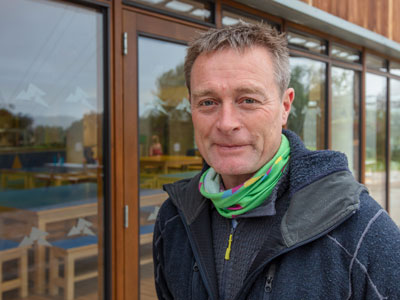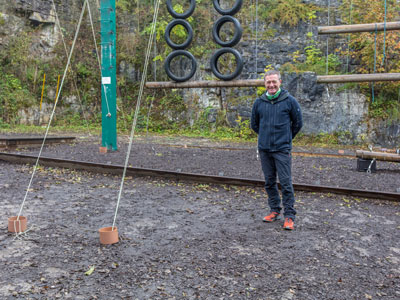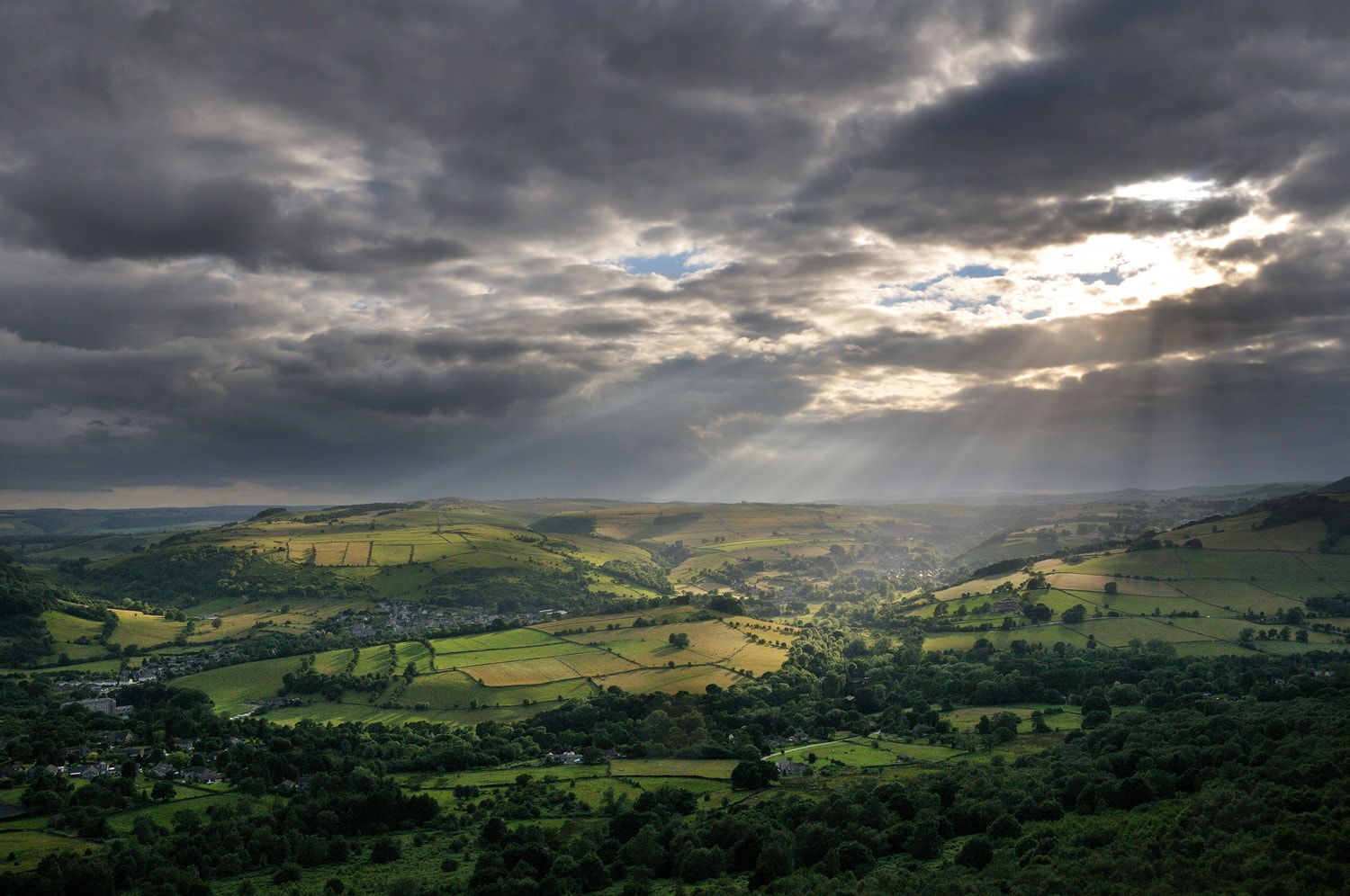#70People70Years - Steve Turner

Steve Turner - Outdoor learning specialist and Peak District National Park Foundation Trustee
Originally from Scotland, Steve Turner was first introduced to the Peak District during his college years, back in the early nineties. He studied for an outdoor education degree at Liverpool, which included visits to the Peak District for rock climbing at Stanage and on the gritstone edges. Naturally, he fell in love with the place and made return visits in his spare time for more climbing and to explore the cave systems.
Later in life, whilst working in the south of England, he and wife Lesley bought a house in Eyam and moved to the area when Lesley found work in Castleton. Since then, they moved to Bradwell and now live in Little Hucklow. In the early 2000s, both Steve and Lesley worked at Losehill Hall – the former National Park study centre, now a popular Youth Hostel, where they delivered Bronze, Silver and Gold navigation courses for a number of years.
As an outdoor enthusiast, Steve grew to know the National Park well through climbing and hillwalking, and more recently through cycling and mountain biking. He has also established strong connections with the Peak District through his work as the chief executive of Mount Cook - the not-for-profit outdoor centre dedicated to providing access to the outdoors for all. It is situated on the edge of the National Park, near Wirksworth.

Steve says: "At Mount Cook, our mission is to provide adventurous activities for young people and those that wouldn’t otherwise have the opportunity. It’s about broadening their horizons, helping them develop key skills and creating lasting memories."
And, he see that the same applies to the Peak District National Park. "At the centre we introduce people to the countryside and give them a break from their urban lives. We work with disadvantaged and marginalised groups and you can really see the differences in people when they are in green spaces and fresh air - you see them grow relaxed and unwind. We live on an island where most people live in large towns and cities so it is important that we have places like the Peak District and other national parks for them to escape to - these places really are the fresh, green lungs of our country where people can breathe more easily and be themselves. It's easy to forget how fortunate we are when you live in it."
As an advocate for outdoor learning, Steve is keen to explain that enabling people to engage with nature is all about making memorable experiences. He says: "The great outdoors as a classroom is a very powerful place - it's where you can give people tangible experiences, and get close to nature. If we come across an owl or a kestrel, or an unusual plant whilst we're out, that anchors people’s memories in something real and they will remember it forever. Even on rainy days, getting wet and muddy is important - having fun and a positive experience is something they take with them."
Along with many others, Steve has observed how the Covid-19 pandemic and lockdowns has highlighted the importance of people being able to access the Peak District National Park to experience the benefits of being in the naturally beautiful landscapes it provides.
Before the pandemic, Steve had become a trustee of the Peak District National Park Foundation as its mission and aims were in line with his own ideals for advocating the place's benefits for everyone and for making more people aware of its opportunities. He says: "It’s about giving something back in terms of access and in direct funding to groups that need it. It's important to help everyone enjoy it who lives in and around the National Park.

"The Peak District National Park is at the heart of the country. It has a massive appeal to millions of people and is a huge natural resource. But whilst we are all using it, it needs to be looked after - so there’s an ongoing legacy of support that’s needed to make it sustainable. It is an oasis in people’s lives and we can only continue to enjoy it if we protect it.
"During the pandemic, as for other charities, it has been a struggle for the Foundation to cope with disrupted plans for fundraising events but we have continued to be successful in raising money and getting it to the people and activities that are helping to make a difference where it matters. We have supported the Junior Rangers, we have provided litter pickers to local groups, bought bird boxes for conservation projects and more.
"It’s still early days for the Foundation but we are managing to do what we set out to do. We hope to keep growing and have larger pools of money to help with conservation and access. People understand that it’s a good cause - and that everyone has a role in helping to look after it. If you enjoy the National Park and can contribute to its sustainable future in some way then it all helps."
At home, Steve is also active within the Hope Valley community and is part of the local group ‘Bradda Dads’, he says it is a great example of community spirit and how communities support each other: "Bradda Dads is about supporting village activities - running the village bonfire, putting a float in the carnival and supporting Wakes Week, organising a Christmas meal for the local pensioners. The group has raised money through annual duck races and a fell race and ploughed the money back in to the community’s activities. It’s typical of how rural communities have a strong sense of belonging, whether you have been born and bred in a place or moved into the area."
Back to 70 People 70 Years.

